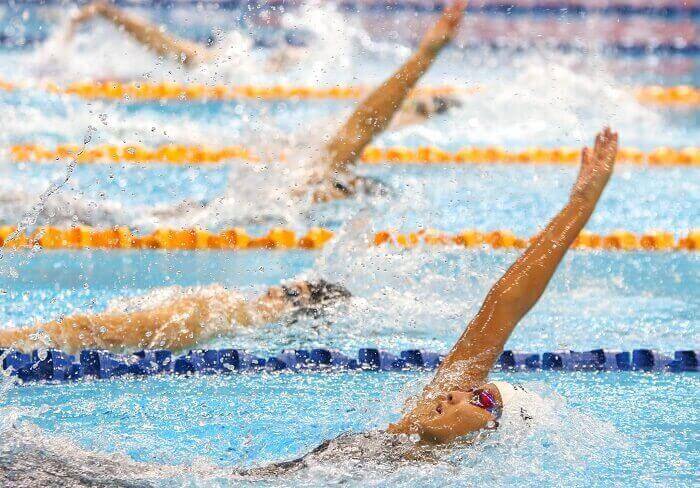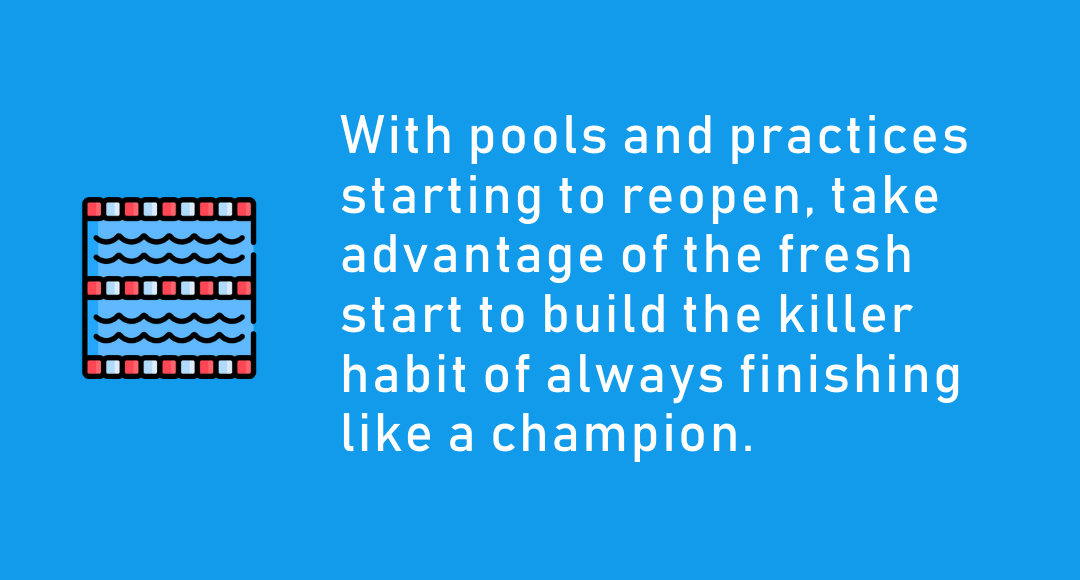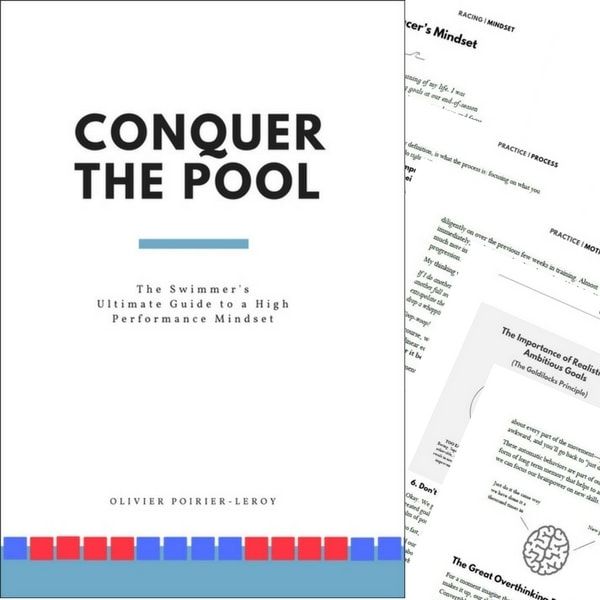“Go out fast, come back faster!”
Probably sounds familiar.
This is one of the classic coach-isms that swimmers receive in the moments before stepping up on the blocks.
But this outlook is something you should bring with you to the practice pool, too.
Here’s why you should always finish strong.
Finish Like a Champion
It’s the end of a big set, something gnarly like 30x100s on a short interval, best average, and it’s a certified fact that you are hurtin’.
Legs are cement, lungs are burning, and you are questioning your choice of sport.
As you begin the head-first fall into Ouchietown, your technique begins to crack, you slow into the finish, and your effort, which at the beginning of the set was pristine and focused, is now disheveled and loose.
The way we finish things are rarely as neat and intense as the way we start.
But it’s exactly these moments, whether it is at the end of the set, or the end of a rep, where you should double down on your effort.
This is when you conquer.
Disclaimer: To be clear… you know I am not talking about being a total Sammy Save-Up, right?
You know, that swimmer who coasts for 95% of the main set and then comes ripping down the home stretch on the final rep, dusting everyone and nearly going a PB?
I’m talking about giving a great effort throughout the set/rep, and then closing with your absolute best.
Every time.
Finishing strong… whether it’s on a threshold set or a drill set or a set of race pace 25s… is a mindset. It takes no talent to do this.
And you can start building this habit today.
The perks of doubling down on your effort at the end and finishing like a champ are 10/10:
You are building an inventory of confidence.
Here’s a fun little quirk about your brain and the way you form memories: in every experience, whether a set, a race, or a season, the most intense peak and the way things end are what you remember most.
This is a psychological heuristic called peak-end rule.
For example, you might have had some good sets over the course of the week, but it’s the most intense one (good or bad) and the most recent ones that you create memories around.
Same goes with a set.
You think about that one great (or terrible) rep, and your final rep.
And because self-confidence is generally built on the back of our memories, of our experiences in the water, isn’t is worth using this little brain quirk to our advantage?
Finish strong.
Always.
Not only do you get the performance benefits that come with a full and complete effort, but you get the confidence that comes with it, too.
Finishing strong leaves you in clear waters.
At the beginning of anything, whether it’s a workout, a season, or a new year, you are full of energy and optimism. And you aren’t alone—your teammates and competitors are also feeling the novelty and excitement of what’s possible and getting started.
But as the training plods on, the novelty starts to wear off, fatigue accumulates, you are battle worn from setbacks/injuries/adversity, and doing the small things, the details, feels tedious and like too much effort.
When you’re tired and beaten up, summoning the effort to perform at a peak level feels onerous. And spoiler alert: so is everyone else. Your teammates. Your competitors.
Which means this is a prime opportunity to differentiate yourself from the competition.
Take advantage of this chance to continue to sharpen your preparation and distance yourself from the swimmer in the next lane.
Finish strong.
You’ll put yourself in rarefied waters.
Finishing strong is an elite habit.
At the end of a race, when your lungs are on fire and you feel like you’ve been slugged by a one-two punch of mental and physical fatigue, you can rely on your established habit of finishing like a champion to carry the day.
You don’t need to think about finishing properly, the habit is already there. Finishing strong becomes the default.
Which, as you can imagine, will give you a solid amount of confidence when you come down the home stretch. Because you have stormed into the finish a million times in practice, doing it again in competition is second-nature.
This knowledge will give you that extra kick of adrenaline and confidence when you push off that final wall and look over the lane rope and meet eyes with the swimmer in the next lane.
Finish strong. Make it clockwork.
There’s a process for that.
A simple way you can dial up your finishing power is to use performance cues at the end of each rep and set.
When fatigue is kicking in, your concentration is evaporating, and your willpower is sagging to the bottom of the pool like a water-logged sweater, use your performance cues.
Last summer I did literally hundreds and hundreds of all-out 50s. When I reached the 30m-35m mark, my lungs were generally on fire, my legs had turned to concrete, and my technique and soul began to crack.
The solution? Distracting myself with a performance cue (“Hulk smash!”) that also helped me stay in the finish strong mindset.
That simple.
Use it enough times in practice, and it will become second nature, something you can rely on in competition to guarantee that your best effort and maximum focus will be there for you at the finish.
Finish strong. Use a cue to trigger it up.
Your Next Move
The finish strong mindset will make you mentally unbeatable at the end of your races.
But for every other part of your mental preparation, whether it’s managing your pre-race nerves, setting better goals, or getting comfortable being uncomfortable during training, there is Conquer the Pool: The Swimmer’s Ultimate Guide for a High-Performance Mindset.
The book was written specifically for the competitive swimmer who wants to unleash a killer mindset in the pool.
More importantly, the book–full of proven concepts and strategies and put together with the input of 200+ head coaches, Olympians, NCAA champions, and former world record holders–makes the how of developing a great mindset clear and simple.
Clearer mindset = more mental toughness.
That simple.
Coaches/Teams:
For group and team orders of Conquer the Pool, we offer a team discount and can place your club’s logo on the cover of the book at no additional cost.
















